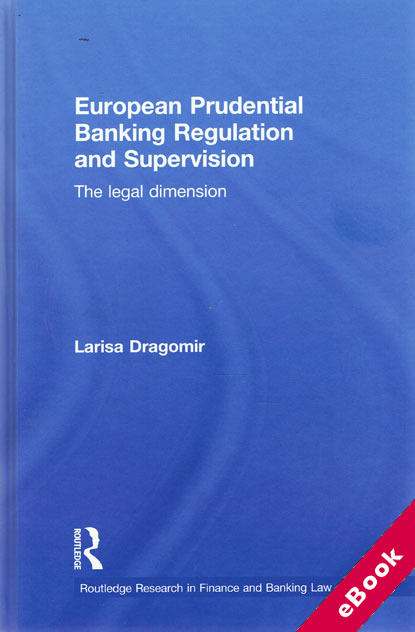
The device(s) you use to access the eBook content must be authorized with an Adobe ID before you download the product otherwise it will fail to register correctly.
For further information see https://www.wildy.com/ebook-formats
Once the order is confirmed an automated e-mail will be sent to you to allow you to download the eBook.
All eBooks are supplied firm sale and cannot be returned. If you believe there is a fault with your eBook then contact us on ebooks@wildy.com and we will help in resolving the issue. This does not affect your statutory rights.
The current financial crisis and the financial market events in 2007-2009 have spurred renewed interest and controversy in debates regarding financial regulation and supervision.
This book takes stock of the developments in EU legislation, case law and institutional structures with regards to banking regulation and supervision, which preceded and followed the recent financial crisis. It does not merely provide an update, but anchors these developments into the broader EU law context, challenging past paradigms and anticipating possible developments.
The author provides a systematic analysis of the interactions between the content of prudential rules and the mechanisms behind their production and application
European Prudential Banking Regulation and Supervision includes discussions of the European banking market structure and of regulatory theory that both aim to circumscribe prudential concerns. It scrutinises the content of prudential norms, proposes a qualification of these norms and an assessment of their interaction with other types of norms (corporate, auditing and accounting, consumer protection, competition rules).
It also features an analysis of the underpinning institutional set-up and its envisaged reforms, focusing on the typical EU concerns related to checks and balances. Finally, the book attempts to revive the debate on supervisory liability, in light of the developments discussed.
This book will be of great value to all those interested in financial stability matters (practitioners, policy-makers, students, academics), as well as to EU law scholars.